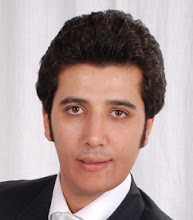Counter Punches by Allies of Rafsanjani and Ahmadinejad
 With the express public criticism of the administration by the head of the State Expediency Council and also Experts Assembly on Leadership Hashemi Rafsanjani, and follow-ups by his allies - which are now expressed without any “consideration” - the state-run media have launched an intense counter attack against the two time president. Sensing the battle to be getting out of control, the administration spokesperson asked Rafsanjani to be friendlier towards Ahmadinejad’s government.
With the express public criticism of the administration by the head of the State Expediency Council and also Experts Assembly on Leadership Hashemi Rafsanjani, and follow-ups by his allies - which are now expressed without any “consideration” - the state-run media have launched an intense counter attack against the two time president. Sensing the battle to be getting out of control, the administration spokesperson asked Rafsanjani to be friendlier towards Ahmadinejad’s government. Gholam-Hossein Elham, the administration’s spokesperson and who is also the spokesperson for Iran’s judiciary sent a note to Hemat weekly magazine, which had previously criticized Rafsanjani, in which he aired disapproval of the 2-time former president and Majlis speaker. “Mr. Hashemi has made an interesting confession which is that his look at Mr. Ahmadinejad’s government is that of an enemy’s, towards which he has temporarily chosen to be “patient,” Elham writes.
The same note was also published this Sunday in Iran newspaper, the government’s official outlet. This article said Rafsanjani’s attitude and words were worth reviewing and asks the influential cleric, “Is it not better to be friendly rather than patient?”
Even though the differences that have been aired between Rafsanjani and Ahmadinejad go back to the 2005 presidential elections that catapulted Ahmadinejad to the presidency, Rafsanjani’s recent attacks have resulted in stronger counter-attacks by the president and his allies. Two weeks ago while talking to businessmen and economists in Mashhad, Rafsanjani said that the time for being patient with the ninth administration had passed. “For three years we have been patient regarding the policies implementation of article 44 of the constitution. When the ninth administration began its work, the esteemed supreme leader had asked that we be patient with it for a period. We can now say that this period has now ended,” Rafsanjani said. [Article 44 of Iran’s constitution identifies the economic activities that the public, private and cooperative sectors shall engage in. Mr. Rafsanjani has asserted that the government had not been observing this division as required.]
These remarks brought about sharp and immediate rebuttals by Iran and Keyhan newspapers (both run by editors appointed by the leader of the Islamic regime or the administration), which called the move an “elections propaganda”. Iran’s next presidential elections are scheduled for next year.
In related news, Mohammad Reza Bahonar, the deputy Majlis speaker leaned to support Rafsanjani in his remarks and said, “Hashemi has criticized the current administration for forgetting the fourth development plan, the 20-year plan, and the absence of economic policies, some of which we support.”
General seyed Hassan Firuzabadi, the chairman of Iran’s chiefs of staff also called for a review of the administration’s policies during the “Government Week” and stressed, “Review does not mean just looking at the good things and being appreciative. During the Government Week, if deviations and weaknesses exist among state authorities or the government’s allies they too must be reviewed, and the public-serving government must take these into consideration.”
But the strongest support for Hashemi Rafsanjani came from Masih Mohajerani, the managing editor of Jomhurie Eslami newspaper. He writes, “Those who believe that Mr. Rafsanjani’s criticism of the government is not valid, should present their views with logic rather than pouncing back or being disrespectful to him. For example, they should provide their reasons to show that the administration has not deviated from the 20-year plan, that the government has been observing article 44 of the constitution and has not taken over all industries, that the price of chicken has not risen from 1,400 Toman to 3,000 Toman (a two-fold increase), the price of meat has not rise from 5,000 Toman to 10,000 Toman (a two-fold increase), rice has not risen from 1,000 Toman to 4,000 Toman (a four-fold increase), the price of housing has not gone up 8-fold, the price of detergent has not gone up from 350 Toman to 900 Toman, that we do not have blackouts, or long gasoline lines, that there is no shortage of gas, etc.” [The exchange rate for a US Dollar is about 800 Toman.]
In response to this, the government’s official newspaper Iran wrote, “It is noteworthy that the managing editor of the newspaper [Jomhurie Eslami] who held various positions in previous administrations, has been benefitting from being an advisor to the current administration without being cooperative or active in it, and has received 14 million Rials (approximately $1,750) per month as a senior advisor to the president until just recently.”
ShahabNews, a news website critical of the administration, wrote yesterday that Iran newspaper’s article was a revengeful piece against the supporters of Hashemi Rafsanjani and wrote, “Naturally Iran newspaper did not explain in its published article, if the story [about Mohajerani] is true, that Mr. Mohajerani’s salary will now be stopped for supporting Hashemi and is for writing a few critical pieces of the administration.”



No comments:
Post a Comment